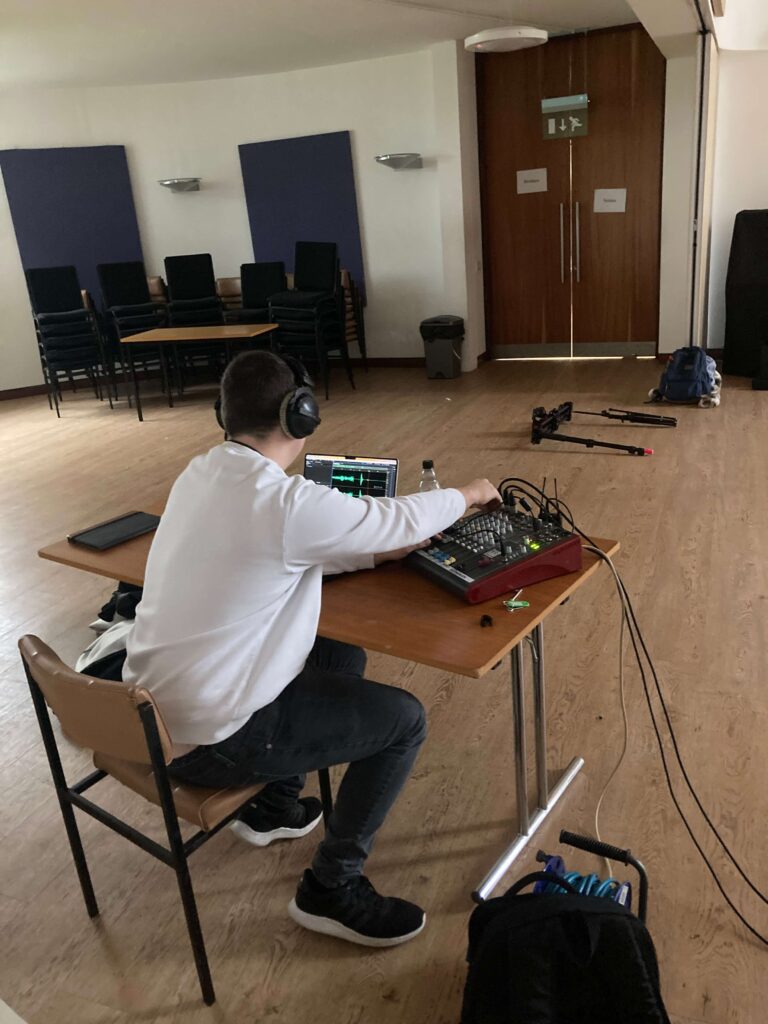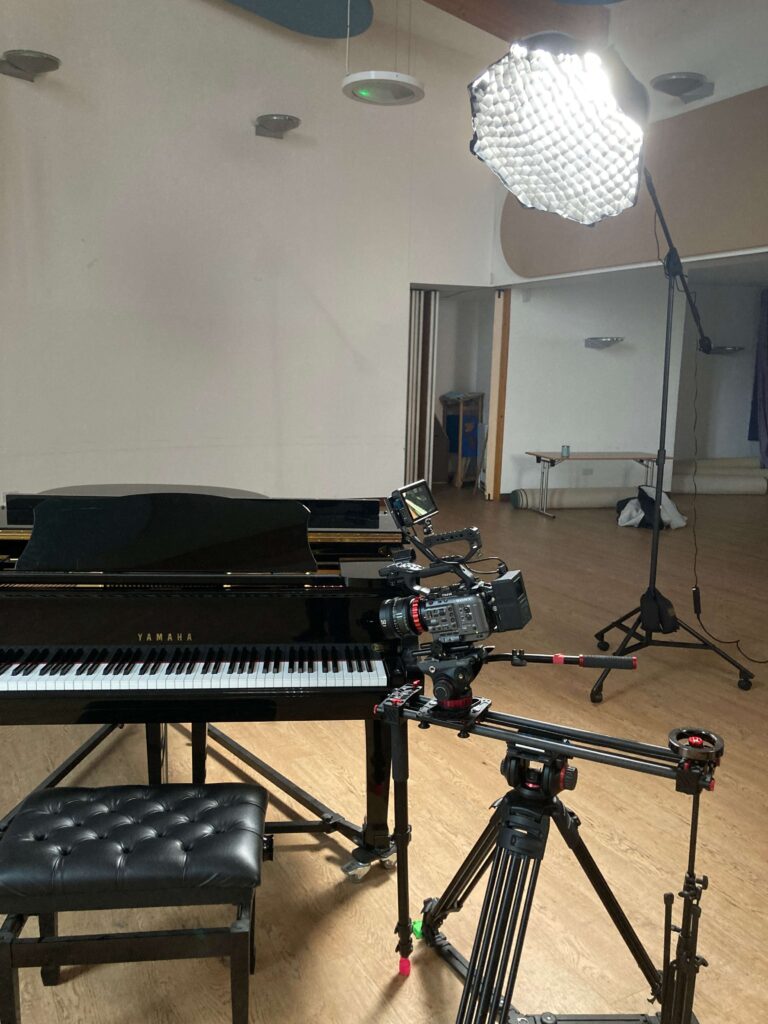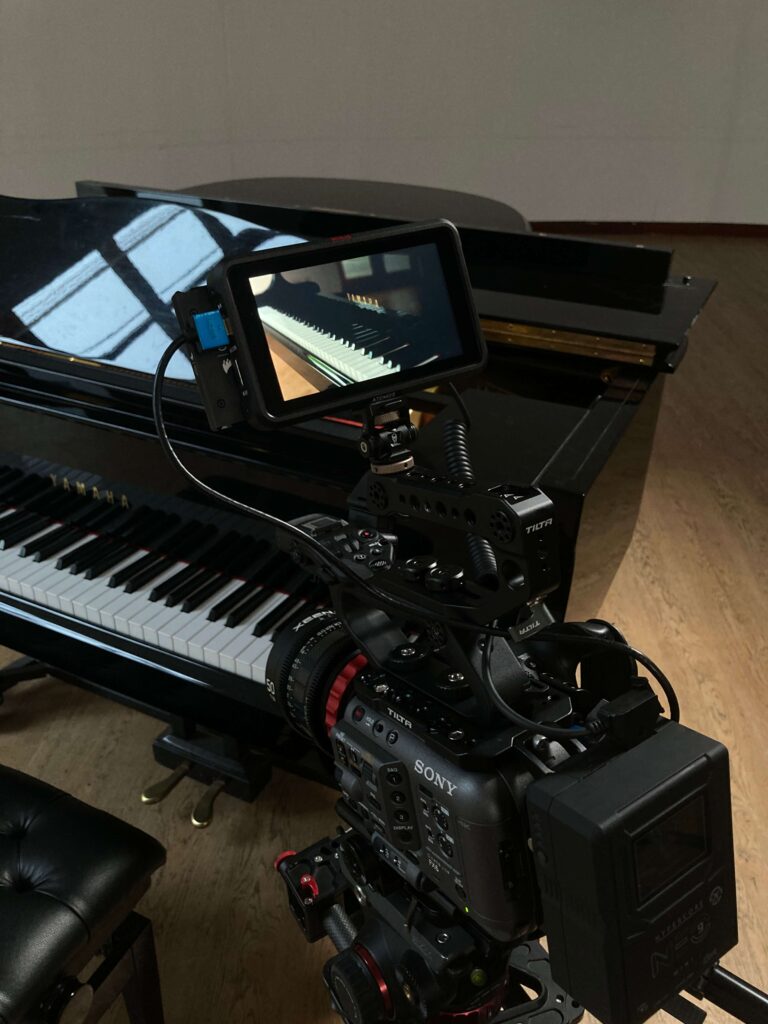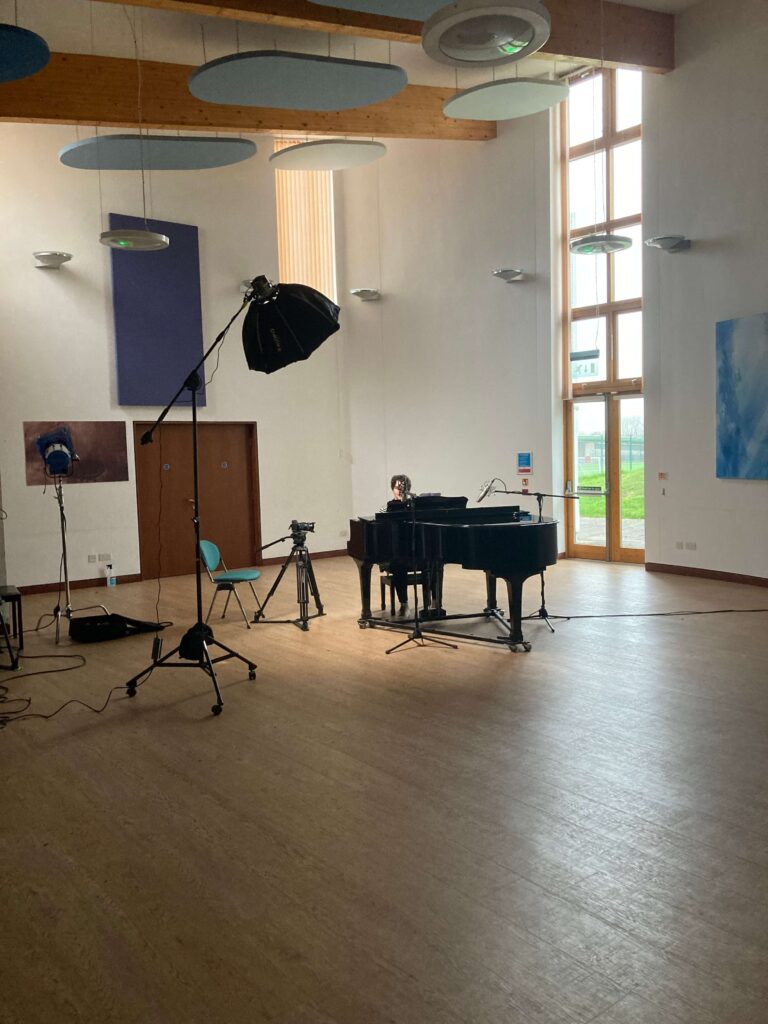By Matt Gilooly (Learning Technology Media Advisor / Associate Lecturer in Media Production)
Brief
Our student Digital Media Producers have recently completed an exciting project that involved creating content for a nationwide maths inclusivity research project. Dr Tom Hunt (Associate Professor in Psychology), Dr Louise Richards (Deputy Dean of Science and Engineering) and Prof. David Sheffield (Director of Prof Psychology Programmes) contacted the Digital Learning team with a research proposition to create a short video. The video would emphasize the importance and usefulness of maths in a range of occupations, particularly its uses outside of the obvious STEM and finance disciplines. The aim of the video was to change young people’s mindset towards maths, challenge assumptions about the relevance of maths within certain jobs, and motivate them to focus on their maths studies. The final video was to be presented to secondary school students (Year 9s), as part of a package of materials being implemented in a nationwide research project.
Maths is a core subject in primary and secondary education, continuing to be influential in everyday life with numeracy confidence underpinning access to services, good decision-making, and success in the workplace. More than 60% of students taking A-Level maths are boys, however, girls outperform boys in grades awarded, and this gap has disproportionately widened between 2019-2021. Despite this, girls are likely to report higher levels of maths anxiety than boys. Research shows maths anxiety is associated with a lack of willingness to pursue further study in maths or to seek jobs involving maths (Chipman et al. 1992; Ahmed, 2018).
Campaigns focusing only on “girls” or “women” potentially ignores a wide range of individual and demographic characteristics, which may not support an inclusive approach to encouraging participation in maths and STEM more broadly. Moreover, an explicit focus on girls/women in STEM detracts attention from another key issue, which is how maths is integral and complementary in many careers. For instance, how many people are aware that maths is required if you are an animator, computer scientist, architect, astronaut, computer games designer, medical doctor, chef, physiologist, teacher, or even a fashion designer?
Therefore, a modern approach is needed to address young people’s attitudes towards maths. The This is Maths project is to effect change in young people’s perceptions of maths, which will impact career aspirations. Using a combination of videos, posters, and a workbook, 22 Secondary Schools from across the UK participated in the project. A key theme running throughout the materials is the application of maths to a wide range of jobs and people. It is hoped engagement with the materials will encourage conversation and thinking that extends beyond stereotypical notions of how maths is used and in which contexts.
Production Process
The first task was to find the right interviewee for our short documentary. One of our DMP’s, Lewis Allsopp (3rd year Media Production student), contacted around 15 local businesses ranging from Artists to Power Station Managers to see how they use maths in their business and whether it might fit with our brief. After a few production meetings, we managed to get support from Steve Machin, Director of Derby School of Music. He was extremely excited to be a part of this documentary as Maths plays a core part of music and he also happened to have a mathematics degree!
Once we had the right voice, we then set out to find the right location and structure the film to be engaging and achieve what the brief set out. Steve has been teaching music for over 20 years and has performed around the world, most recently in front of the Dubai Royal family, so with this in mind, we wanted him to incorporate his musical talent into the video.
We filmed this short piece in the Multifaith Centre at the University. We had a tight filming schedule with only 3 hours to get what we need. Once filming completed, the team spent the following week editing the project to make sure it hit the mark.
We are happy with how it turned out, with the video itself now complimenting a variety of other resources being packaged together for the 22 Secondary Schools nationwide.
View the video now on Panopto (link will open a new tab).
If you have any ideas for great learning and teaching content or to find out more about our Digital Media Producers (UoD staff only) or would like to work with one of our students to create educational media content, please contact Charlotte Gregory-Ellis, c.gregory-ellis@derby.ac.uk or Matt Gilooly, m.gilooly@derby.ac.uk.



